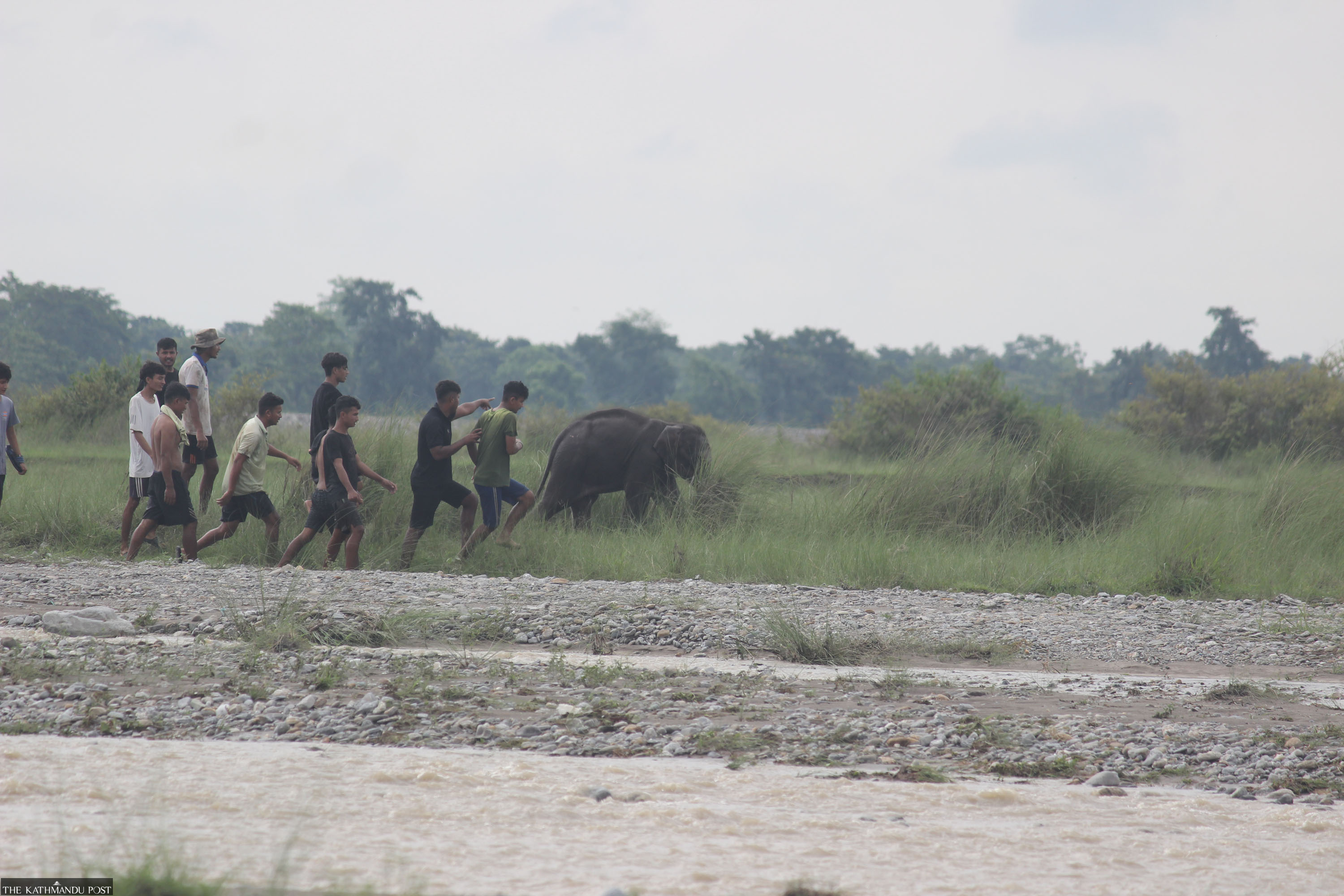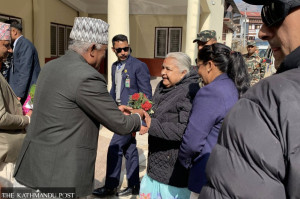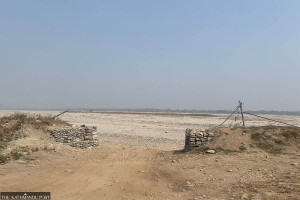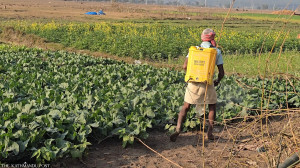Koshi Province
When an elephant calf was left behind by its herd, locals resorted to abuse
Mechinagar locals encircled the calf, lassoed it and brought it to the ground with a loud thump.
Parbat Portel
In an episode of what wildlife conservationists call a blatant display of animal cruelty, residents of Mechinagar Municipality in Jhapa on Monday physically abused an elephant calf separated from its herd.
The incident occurred after a herd of wild elephants entered Bahundangi village in Nepal from Kerabari, Naxalbari of India’s West Bengal state on Sunday evening. The herd crossed the electric fencing and wreaked havoc in the village and returned to India in the morning. However, a male elephant calf, around two-three years of age, got separated from the herd.
A group of locals spotted the calf and informed others. Soon there were hundreds of angry locals who were in a mood to have the young calf pay back for the damage done by its herd the night before.
The locals surrounded the calf, lassoed it and brought it to the ground with a loud thump. Once the calf was on the ground immobile, its legs tied by ropes, some locals started taking selfies with the helpless calf while some began pulling the ropes and attacking the young elephant.
Even as the helpless animal was being abused, officials from the Nepal Police, Armed Police Force and Forest Division did not do anything to stop the locals the whole time.
After around one hour, the elephant was set free.
“We feared that the elephant would die so we decided to free it,” said Hasta Pradhan, a local man who was part of the mob who had surrounded the calf. “The calf looked unwell so we freed it.”
Mechinagar-4 ward chairman Arjun Kumar Karki, however, claims that he had the elephant sent back to India and handed the calf over to the forest officials on the Indian side so as to “avoid further attack on the animal.”
“No one should engage in animal cruelty that way,” said Karki.
However, the young calf’s ordeal did not end after being released. The locals chased the frightened animal and repeatedly hit it with sticks and stones in their bid to send the elephant back to the Indian side. At times, the elephant also tried its best to deter its attackers but to no avail. This back and forth exchange went on for another hour.

“Some of the locals pulled the elephant’s tail, beat it, tried to climb on its back and pushed and pulled it to bring it to the ground,” said Suman Karki, another local, “Other locals who were afraid to come near the animal seemed to take pleasure in the abuse the elephant calf was going through.”
Karki said that it was really difficult to send the calf back to the Indian side as the Mechi river had swollen due to floods caused by rains. “After trying for a long time, the elephant was able to cross the river and head towards the other side,” said Karki.
Dr Narendra Pradhan, an expert on elephants, said that an animal has the same right to live as humans, adding that an elephant does not show aggression unless someone provokes it.
“Elephants are social animals and if someone causes harm to their offspring the mother elephant becomes aggressive and can cause more havoc,” said Pradhan, “No one should poke, beat or attack an elephant.”
Wild elephants from India have been wreaking havoc in the bordering villages of Jhapa district for years. The number of elephants entering Nepal from India has been increasing every year. According to the Division Forest Office, Jhapa, 53 people have died in elephant attacks while 13 elephants have been killed in the last ten years.
Pradhan said the conflict between elephants and humans should be addressed by locals and authorities of both countries.
“The elephant-human conflict will rage on for years unless the affected people and authorities of both the countries treat the issue as their own, and animal abuse will continue,” said Pradhan. “There is no responsibility on the part of the elephant, but we humans have a duty to avoid such conflicts. Unless we change our behaviour and attitude, this conflict will increase instead of being resolved.”
Environment conservationist Dr Shanta Raj Gyawali condemns the behaviour displayed by the Bahundangi locals towards the elephant calf.
“In such situations, instead of resorting to inhumane behaviour, the locals should have called for professional help and sent the calf on its way towards its herd,” said Gyawali, “This instance could escalate the human-elephant conflict in the future as elephants could see humans as potential threat and attack unprovoked.”
Gyawali said that in an effort to stop incidents of abuse against wild animals, authorities should conduct awareness programmes and train the locals to deal with such situations.











 16.12°C Kathmandu
16.12°C Kathmandu













